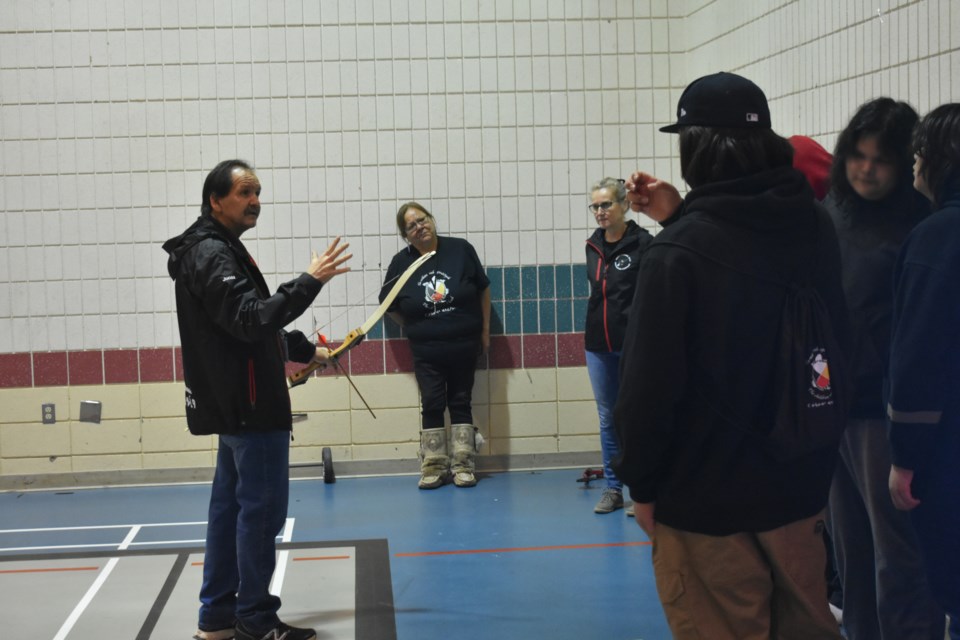KAMSACK, COTE FIRST NATION — The Language and Culture Revitalization Youth Conference, hosted by Cote First Nation on March 14 and 15, aimed to tackle the pressing issue of language preservation among Indigenous youth. The conference, which started with an opening ceremony filled with speeches and cultural performances, followed by presentations and classes across the school, highlighted the urgent need to revitalize Indigenous languages and pass on traditional knowledge to younger generations.
Led by educators, elders, and community leaders, the conference emphasized the importance of preserving Indigenous languages as a vital part of cultural identity. Wanda Cote, a key organizer of the event, stressed the critical role of language in connecting youth with their heritage. She highlighted the declining number of fluent speakers and the need to engage youth in language learning activities both inside and outside the classroom.
“This conference is all about language, culture, and revitalization,” said Cote. “Our languages are in a dangerous state. We're getting less and less elders. We have less and less knowledge people. We're trying to revive our language and connect with the youth, so this is what this conference is all about. We're doing different land-based activities. And we’re also doing in-class language activities. We have language facilitators. So we're trying to get our kids interested in the language because a lot of them don't speak. Their parents don't speak at home. So we're trying to teach them Saulteaux specifically.”
Keynote speaker Lynn Cody, a language teacher with a bachelor's degree in Saulteaux Language Studies at the First Nations University of Canada, shared her journey of reconnecting with her Indigenous language and urged attendees to embrace their cultural heritage. She emphasized the significance of language in shaping identity and encouraged children to take pride in their linguistic heritage.
“This school is going to help us,” said Cody. “Bringing our language into the school, and bringing our history into the school is going to help our kids. It's going to help us, it's going to help the kids with knowing who they are, and where they come from, their identity, where they belong. You students do not only belong to this reserve, you belong to people, you belong to the land. This is our land and learn about the land because you’re part of this land.
“Our belief is that when we leave this earth we go back to the land. So this is our land, and our language is tied to that land. When I was growing up, and when I learned the language as a child, I went to school at Kamsack I was made fun of so I quit speaking. I was also made fun of by my own people, but they just found it cute. I didn’t take it that way, so I quit speaking the language, not knowing they were trying to help me. I took it the wrong way and I quit speaking.
So now I’m really trying my best. I studied the language, and I remember things. My ancestors are with me. I could hear my grandfather speak to me a lot. Especially if I do not understand a word, I hear his voice. So remember languages hardens you, all of you have a piece of language in you, your grandparents, your great-grandparents, they're all a part of you. Self-identity is very important for us knowing where we come from. You can know that your birth, you’re female or male, Métis, or Cree. That's not enough, you have to know where you come from, and that is the land and this is where we come from.”
Throughout the conference, participants engaged in various activities aimed at promoting language learning and cultural appreciation. These included drum making, moss bag making, traditional cooking, medicine teachings, buffalo teachings, archery, Saulteaux bingo, Sleigh Rides, and total physical response (TPR) language teaching.
The event provided a platform for elders and educators to come together and educate the students.




